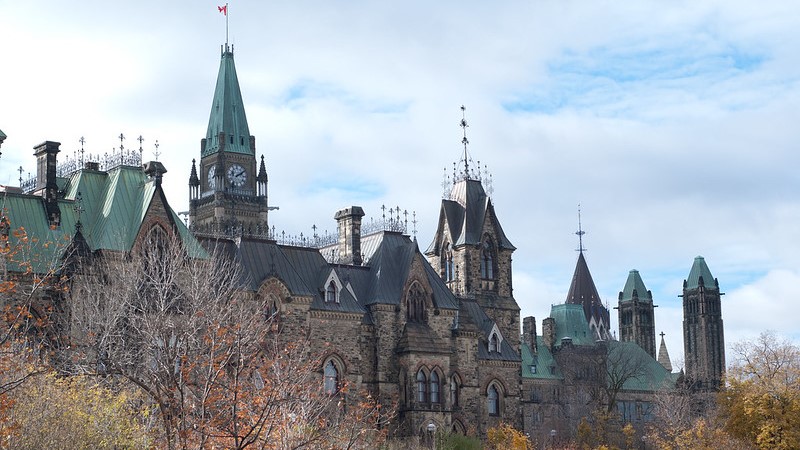Prime Minister Justin Trudeau has presented a bill to commit Canada to cut its emissions to net zero by 2050 and set five-year targets to meet the goal.
The bill, called the Canadian Net-Zero Emissions Accountability Act, follows an election pledged by Trudeau to set the country on a path to achieve carbon neutrality by 2050.
The act, which was introduced to parliament on Thursday, establishes a legally binding process to set five-year emission reduction targets from 2030 and develop a credible plan to meet each commitment. If passed, future governments would have to report regularly on progress towards meeting the goals.
However, the bill does not set out how the government is planning to reduce emissions in the short term nor does it propose a new 2030 target.
Trudeau told reporters on Thursday: “During the last election, our government promised to legally bind Canada to its commitment to net zero emissions by 2050. This morning we delivered on that promise.”
The bill “lays out a framework of accountability and transparency so that we reach this goal in a way that gives Canadians confidence. This is a fundamental step in our strategy to build a strong, resilient economy that works for everyone,” he said.
Canada has failed to live up to its climate commitments in recent decades. It reneged on the Kyoto Protocol and prior to the pandemic was off track to meet its 2020 emissions target.
China is set to meet UN climate deadline, experts say, but coal pathway is uncertain
In his election manifesto, Trudeau promised to “exceed” Canada’s 2030 target of cutting emissions by 30% from 2005 levels. But he will need to take much greater climate action if he is to do so.
Despite a dip in emissions caused by the Covid-19 pandemic, Canada may not be on track to meet its 2030 goal, according to Climate Action Tracker.
“What we see is that there is no plan at all. There is no plan for getting us to net zero. And it’s really just a game of smoke and mirrors,” Green Party leader Annamie Paul told reporters.
“There is only talk about accountability of a plan that will be developed at some future date,” she said, adding that it could take up to a year and a half under the bill for Canada to adopt a new 2030 target.
Paul said this was “a failure,” adding that under the Paris climate agreement, Canada was expected to enhance its 2030 climate plan this year. “This legislation makes it clear that we have no intention to increase our target within this year.” The Green Party backs a 60% emissions reduction by 2030.
Jagmeet Singh, leader of the left-wing New Democratic Party, which recently backed Trudeau’s minority government in a confidence vote that prevented a new election, promised to “push the government to ensure accountability begins sooner”.
Conservative MP Dan Albas said the government needed to be transparent about how much the plan would cost.
Boris Johnson has further to go on climate to show true leadership
The bill requires every department and federal corporations owned by the government to include climate risks in their planning. It also sets up an independent body to advise the government on how to achieve the net zero goal.
Isabelle Turcotte, federal policy director at the Pembina Institute, said the legislation “will help Canada achieve its low-carbon energy potential”.
The bill, she said, “moves us past the vagaries of the election cycle with legal requirements on governments to achieve climate progress, a strong accountability framework provides much-needed regulatory certainty for businesses to confidently make investments needed today to create jobs”.
Turcotte said the bill presented some key elements of a “coherent framework” to achieve net zero emissions that will need to be enhanced in the coming months.
“When it comes to net-zero emissions by 2050 it’s not just the destination, it’s how we get there that matters,” she said.
